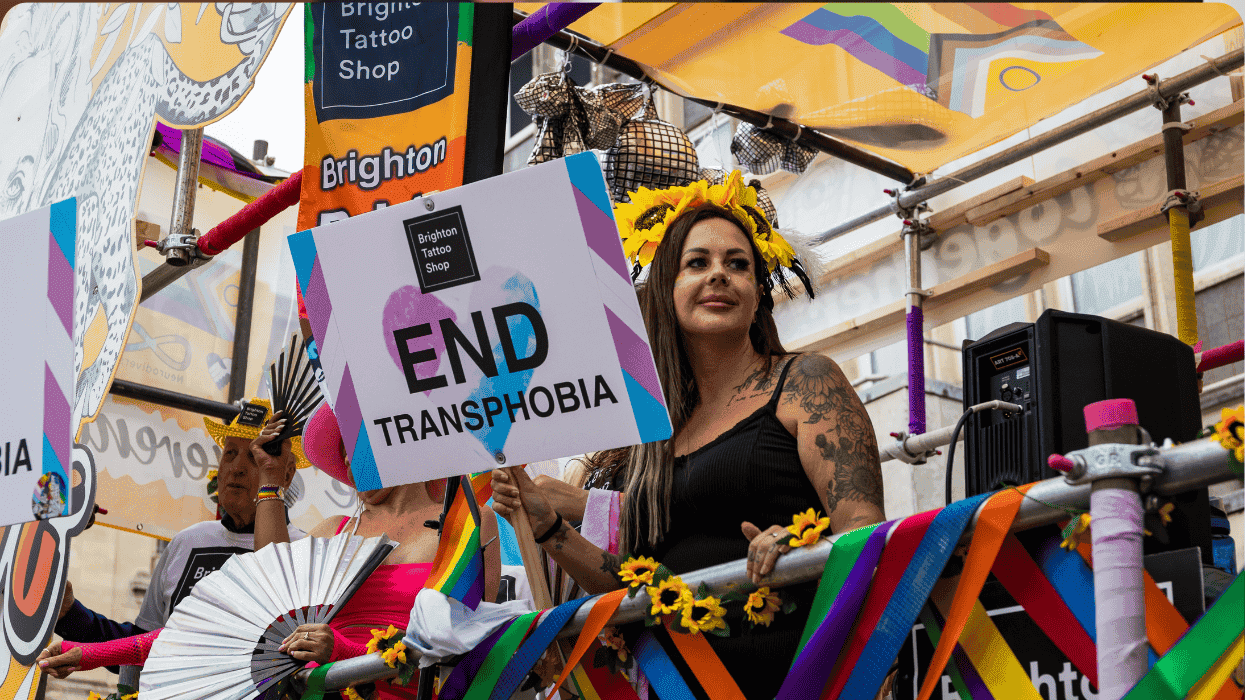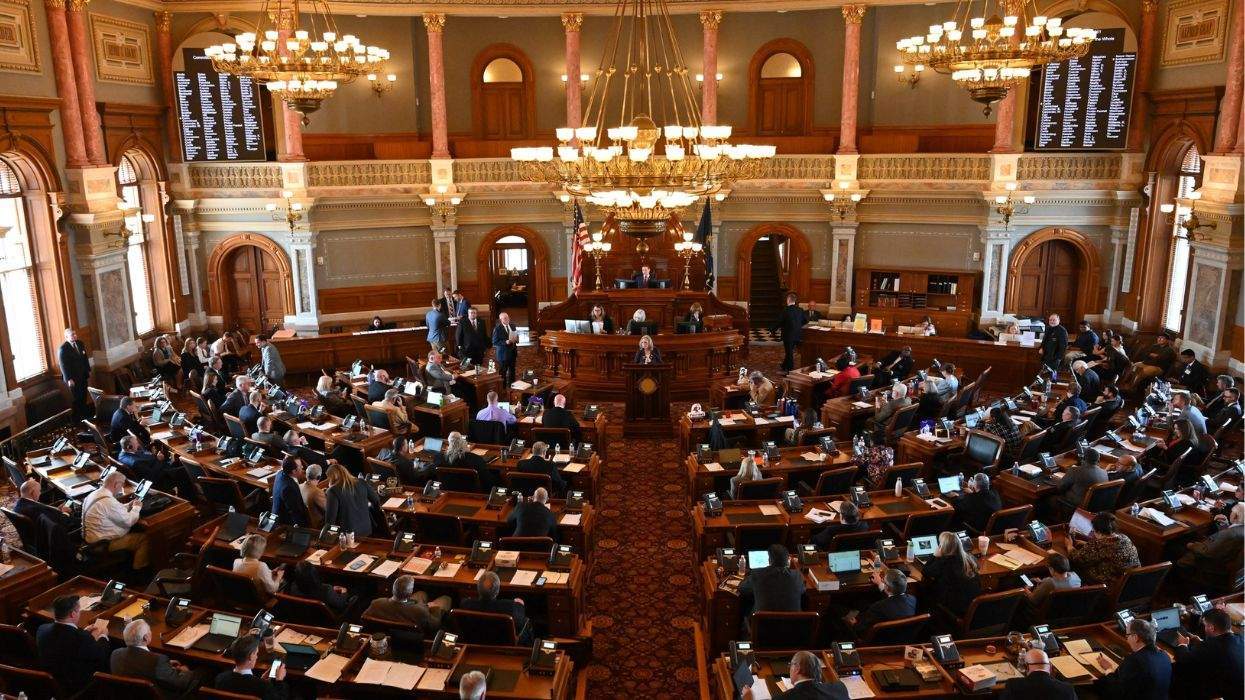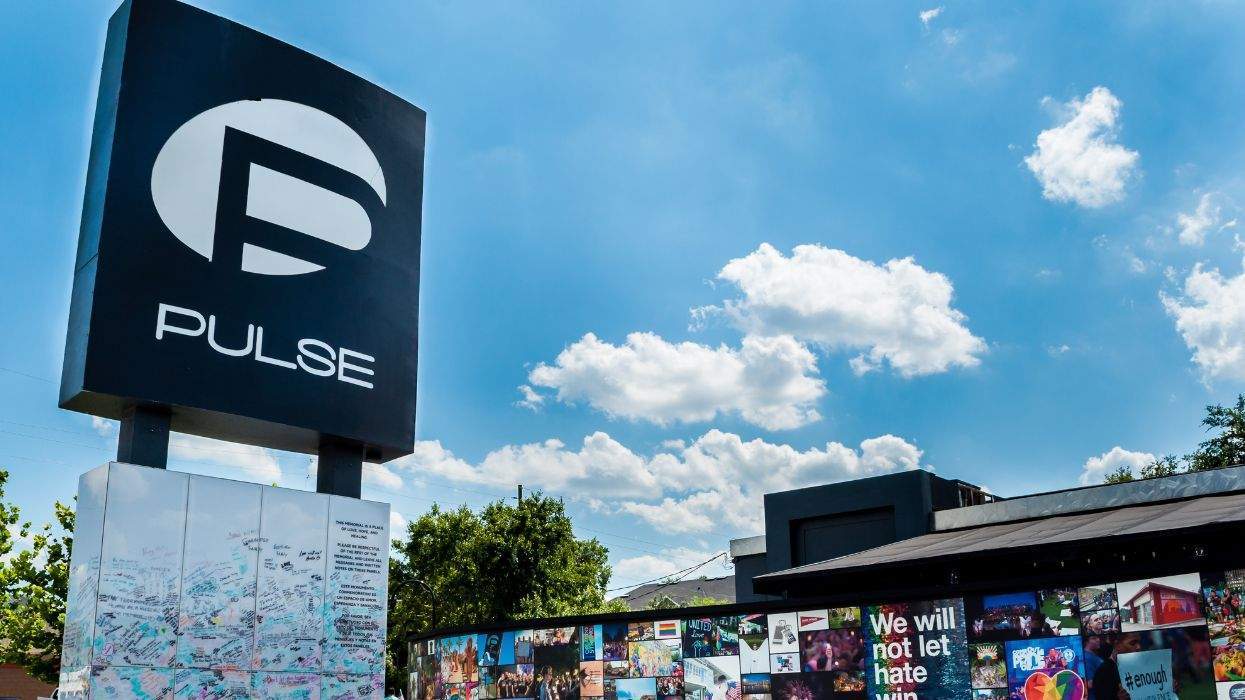Barry Wood died this month. He was 80, which boggles the mind. He taught theater and drama at my old high school, Peters Township in suburban Pittsburgh, for over 40 years.
You didn't know Mr. Wood, but I'll bet you can recall your own drama teacher, and perhaps like Mr. Wood, he or she was gay too.
It seems so stereotypical to automatically label drama or theater teachers as gay. Drama teachers painted with a full brush stroke of being queer. Almost as if that attribute is needed to authenticate them. But always the queer ones were most authentic.
Tom Hanks gave prominence to the conventional gay drama teacher when he supposedly outed his during Hanks's 1994 Oscar acceptance speech for Best Actor in the powerful film Philadelphia.
"I would not be standing here if it weren't for two very important men in my life," he began, saying later, "Mr. Rawley Farnsworth, who was my high school drama teacher." He then cited a classmate and added, "Because they are two of the finest gay Americans, two wonderful men that I had the good fortune to be associated with, to fall under their inspiration at such a young age."
Hanks had called Farnsworth, who he hadn't spoken to in 20 years, before the Oscars and asked his permission to mention the fact he was gay, and Farnsworth agreed.
Hanks's revelation about his drama teacher spawned a movie, In & Out, in which closeted drama teacher Howard Brackett (Kevin Kline) is outed by his former student Cameron Drake, played by Matt Dillon, during Drake's Oscar acceptance speech.
And NBC's drama Rise was inspired by the true story of closeted high school drama teacher Lou Volpe and based on a nonfiction book about him, Drama High: The Incredible True Story of a Brilliant Teacher, a Struggling Town and the Magic of Theater. In the series NBC made Volpe straight, perhaps much to the detriment of the success of the show since it only lasted one year.
Mr. Wood never talked about his sexuality when I was in his class, and back in the early '80s he most likely would have been fired for doing so, despite the fact that he was a remarkable person and educator.
In August of 1982, my widowed mother remarried, and we had to move to the South Hills of Pittsburgh, to Peters Township, so that my new stepfather could be closer to his kids.
That was such a volatile time in my life, and uprooting the family was plain torture for me, particularly since we moved into our new home the day before school started at Peters Township High School where I'd begin my junior year.
Like any new kid, I had an awkward start, particularly since I had only been in the district for less than 24 hours. I had registered for a theater class in early August when choosing my courses, since I had flickering dreams of being a famous actor.
The first day of theater class, I walked into the auditorium, and I was alarmed. I was the only boy in the class. There were lots of pretty girls. And then there was Mr. Wood, and it was painfully -- to me -- obvious that he was gay. The erroneous implication, again to me, was that everyone would assume I was gay because I was in his class. I was beyond frightened. It was an inauspicious beginning.
This would never work in the ridiculous plan I hatched to be popular in my last two years of high school at a new school, so I set out to distance myself from the class and Mr. Wood.
I went to my high school guidance counselor and asked to be dropped from the course. "Give it a chance," he said. "Mr. Wood is a great teacher. You won't regret it." Thankfully, I was left with little choice.
I begrudgingly returned to the class and bit the bullet. During the second week of the course, Mr. Wood announced he was casting for a variety show he was directing called Kaleidoscope. The show would start with a short comedy about Adam and Eve. Mr. Wood asked me if I would like to play Adam, and after some persuading, I said yes.
The girls in the class turned out to be the most popular girls in the senior class, and one day I regaled them with my impressions, including a spot-on Rodney Dangerfield. The girls told Mr. Wood about my Dangerfield imitation. He asked to see it, laughed till he cried, and carved out 10 minutes in Kaleidoscope for me to perform as Dangerfield.
Dressed in the famous comedian's garb, black suit, red tie, I killed it. The reverberations of that performance ran deep. The popular girls invited me out with all their popular friends, homecoming kings and queens, and I entertained them constantly. By the end of the year, I had achieved my ridiculous goal of being popular. I was named Class Clown and in a landslide was voted senior class president.
I don't say all this to brag. Being "popular" seems so trivial and pointless now, but I know now that it was a way to deflect any suspicion about my sexuality. I was goofy-looking, slightly overweight, not the least bit attractive, and not an athlete like the rest of my new friends. However, I was funny, and that's what everyone loved.
But indulge me for a moment while I brag! During our pseudo Oscar awards ceremony at the end of the school year, I won Best Actor for my portrayal of Adam. Mr. Wood was so happy for me. Mmm, wonder why I can't get Bruce Springsteen's "Glory Days" out of my head?
Then I left the nest of Barry Wood after that junior year and never looked back.
Until now. After his death a few weeks ago, I began to think about that time in my life and how consequential Mr. Wood was. He provided me with a real understanding and love of theater, so much so that after six years of working on Capitol Hill at the beginning of my career, I moved to New York explicitly to become an actor, and I returned to acting classes.
I spent two years trying and struggling; however, I did manage to do several shows as a member of a small theater company on the Upper West Side. I have such wonderful memories of those days; however, the theater didn't pay the rent, and I started working in PR and always wondered what could have been.
And, at the time, I always hoped that Mr. Wood would be proud of me, even though he was but a distant memory.
About 20 years ago, I was driving along Interstate 80 in Pennsylvania with an ex. I was sitting in the passenger side glancing at the people in the cars we were passing.
Then suddenly, I looked and there driving next to us was Mr. Wood. I yelled for my boyfriend to slow down, and I rolled down the window, flailing my arms to get his attention. He saw me, instantly smiled widely, and gave me a hearty wave.
It was fleeting. I saw him for a moment, passed right by him, just like I did in high school. I didn't get to tell him about my theater work or the fact that I had a boyfriend and like him, I was gay too.
And that was it. That was the last time I saw him.
In some ways, I now realize at this later stage in my life all the things Mr. Wood did for me in such a short period of time. He gave me a platform to be popular. He instilled a love of theater in me, and he was my first real interaction with a gay man, and it was nothing to be scared about. He was to be marveled over.
He taught thousands over his long career. Won many awards and more than that won the hearts of all of his former students who adored him. Mr. Wood could have easily been labeled the cliched "gay theater teacher," but he was so much more than that. So much more.
Thank you, Mr. Wood.
John Casey is editor at large for The Advocate.
















